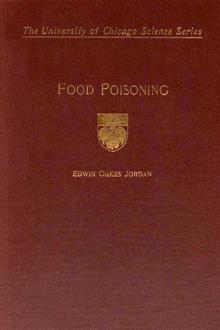Food Poisoning
Food Poisoning
Although most attacks of food poisoning are usually of a slight and apparently temporary nature, it does not follow that they are to be considered negligible or of trivial importance from the standpoint of public health. The human organism is always more or less weakened by such attacks, many of them, as we shall see, genuine infections; and, as is known to be the case with many infectious diseases, some permanent injurious impression may be left on the body of the affected individual.
Book Excerpt
days, the animal will die in a few minutes with symptoms of violent poisoning. Whatever be the physiological explanation of the remarkable change that thus results from the incorporation of foreign protein into the body, there can be no doubt that the phenomenon known as protein sensitization or anaphylaxis is relatively common.[2] Sensitization to proteins came to light in the first instance through the study of therapeutic sera, and has been found to have unexpectedly wide bearings. It is now known that not only the rash and other symptoms which sometimes follow the administration of horse serum containing diphtheria antitoxin, but the reaction to tuberculin and similar accompaniments of bacterial infection, are probably to be explained on the principle of anaphylactic change. The sensitiveness of certain individuals to the pollen of particular plants (hay fever) is also regarded as a typical instance of anaphylaxis, accompanied as it is by asthma and other characteristic manifestations of the anaphylactic
Editor's choice
(view all)Popular books in Health, Science, Non-fiction
Readers reviews
0.0
LoginSign up
Be the first to review this book

 Free Download
Free Download






















-itok=vcKIB5v1.jpg)
